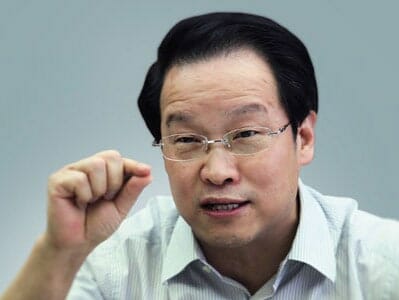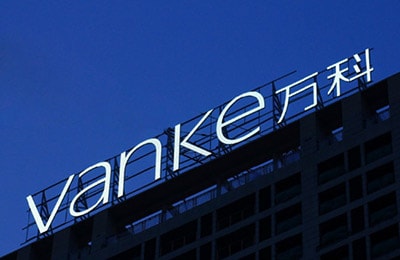
CSRC chief Xiang Junbo seems a teensy-bit fed up with the Vanke drama
China’s securities regulator has sent formal notices to both China Vanke and its unwanted suitor, Baoneng Group, for violations related to the ongoing takeover battle for the mainland’s biggest property developer.
Just days after Vanke chairman Wang Shi had called for an investigation into Baoneng’s financing practices, China Securities Regulatory Commission chairman Xiang Junbo on Thursday warned that insurance companies shouldn’t be used as “automatic teller machines,” according to an account in Reuters. The remark by China’s top stock market watchdog was an apparent reference to Baoneng’s aggressive use of its insurance subsidiaries as fund-raising mechanisms for M&A.
Along with Xiang’s announcement, both Vanke and Baoneng were officially warned on Thursday about violating disclosure regulations regarding shareholding changes as the property company’s management resists a rare hostile takeover by the privately held financial conglomerate.
CSRC Statement Follows Accusations of Illegal Fund-Raising
In its fight with Baoneng, Vanke had called on the CSRC to look into how the conglomerate has financed its acquisition of shares in the developer – accusing Baoneng of using illegal fund-raising methods.
Baoneng has raised cash for its Vanke stake through sales of short term insurance policies which double as wealth management products, a practice now frowned upon and which would seem to be the target of the CSRC chairman’s ATM remark.
Baoneng’s subsidiary Foresea Life Insurance, which it used to acquire much of its Vanke stake, saw its total sales drop by 42 percent in June compared to the same month last year, after the China Insurance Regulatory Commission (CIRC) banned sales of insurance policies with durations of less than one year, and restricted the sale of policies with durations of less than three years.
Policies such as Foresea markets typically promise investors returns of 3.5 to 4.5 percent annually, and to attract customers, are often set up to be highly liquid. Wu Xiaohui’s Anbang Insurance, which failed in its $14 billion bid to buy Starwood Hotels and Resorts, has also relied on sales of these high yield “universal insurance” products to finance its acquisition spree.
Baoneng is also said to have pledged some of its existing Vanke shares to stock brokers as collateral for loans to buy more shares, leading to the potential for panic sales should Vanke’s share price slip.
No End in Sight in Battle for Vanke

The CSRC warned about damage to Vanke’s name among investors
The financial firm began buying up shares in the developer last year, and now has the biggest stake in the now-Fortune 500-ranked homebuilder at 25 percent. Wang, who grew Shenzhen-based Vanke from a trading company, has reacted angrily to Baoneng’s rising role, and matters grew worse after the conglomerate controlled by tycoon Yao Zhenhua filed a motion last month to remove Wang and virtually all of Vanke’s board.
To add to the drama, Baoneng’s acquisition of Vanke shares was aided in part by financing from Vanke’s former largest shareholder China Resources, although the state-run conglomerate eventually blocked last month’s move to replace Vanke management.
While the CSRC has not clearly sided with either Vanke or Baoneng, the takeover battle was raised again at a regular session held by the agency on Friday. “It’s a pity that we still haven’t seen the Vanke shareholders and management taking sincere, effective measures to resolve differences,” CSRC spokesman Deng Ge said at the briefing, which was reported by Bloomberg. “On the contrary, they’ve been escalating the conflict in various ways.”
Without indicating any impending action, the regulator went on to admonish all parties involved for destablising the market and smudging Vanke’s industry-leading reputation.
Leave a Reply